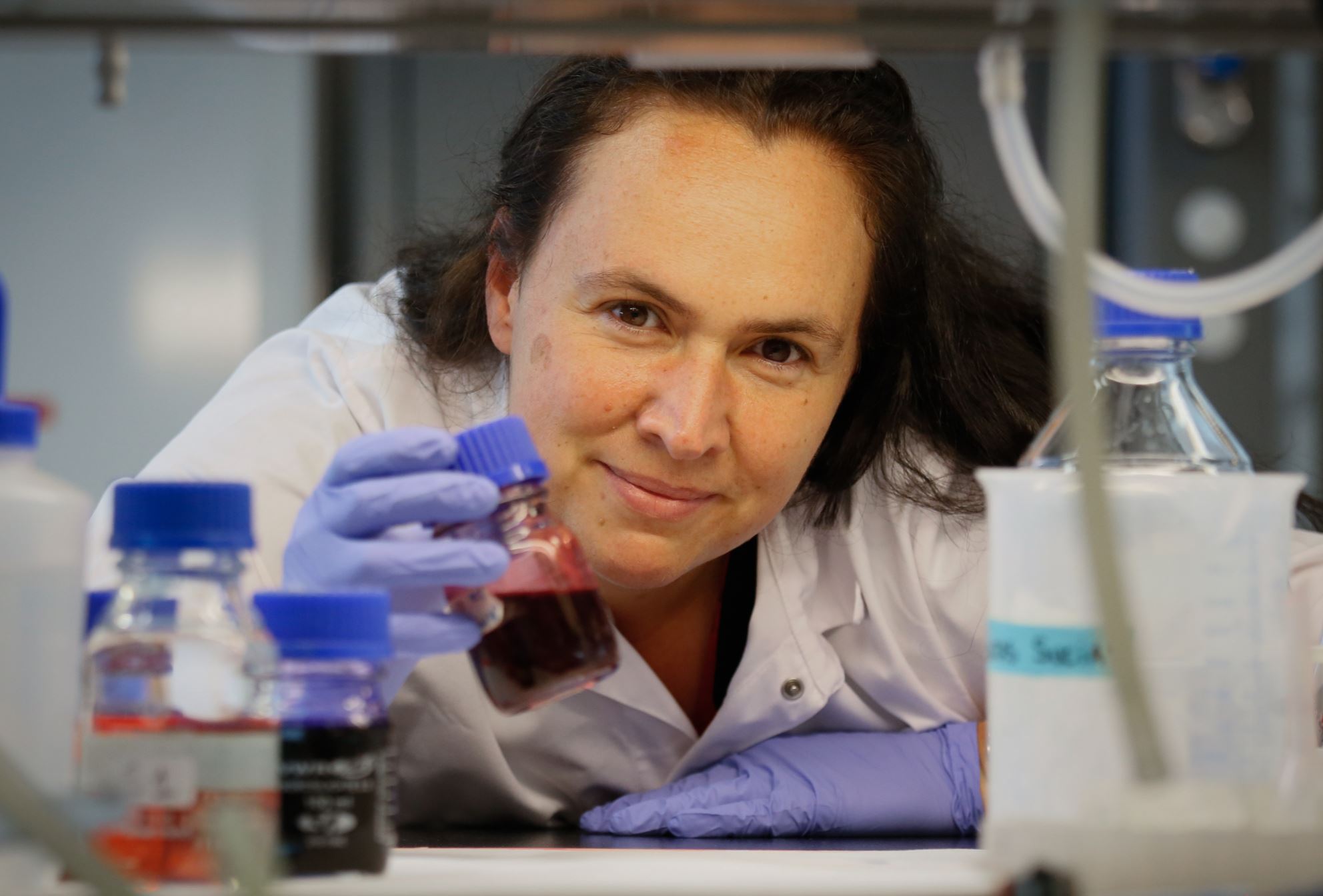Marta Cortés Canteli recipient of a 2021 Leonardo Grant
This project represents a major development in the need to implement early cardiovascular intervention strategies that are capable of reducing the incidence of AD at the advanced ages in Alzheimer's disease
Marta Cortés Canteli's research project on the "Preclinical connection between cardiovascular disease and Alzheimer's disease", has obtained one of the BBVA Foundation's 2021 Leonardo Grants for Researchers and Cultural Creators.
Her project, which will receive a gross 40,000 euros, aims to determine the levels in blood of the plasma biomarkers for Alzheimer's, in particular of the phosphorylated tau-181 protein, among asymptomatic middle-aged individuals with cerebral hypometabolism and subclinical atherosclerosis disease to ascertain whether they were already in the initial stages of Alzheimer's disease (AD).
Research has shown that the onset of different forms of dementia, in particular Alzheimer's disease, has a close relationship with different vascular risk factors and with the presence of cardiovascular disease. This correlation has been extensively researched at symptomatic stages, but little is known about their relationship during the long pre-clinical phases of cerebral and cardiovascular diseases that reach back 15-20 years before the debut of symptoms. Dr Cortés Canteli therefore proposes that ascertaining whether there is an association between the two diseases, years before the manifestation of first symptoms, opens up the possibility of intervention in disorders that it is possible to modify, such as cardiovascular diseases, thus preventing the progression of a pathology for which there is no treatment, such as dementia.
However, understanding the interrelation between cerebral and cardiovascular diseases at a preclinical level requires a longitudinal study to evaluate their progression during asymptomatic stages
The PESA-CNIC-Santander Progression of Early Subclinical Atherosclerosis study, led by Dr Valentín Fuster, is a prospective study that includes over 4000 asymptomatic middle-aged subjects among whom the presence and progression of subclinical atherosclerosis has been exhaustively evaluated since 2010.
"Very recent studies at our laboratory, conducted within the framework of the PESA-CNIC-Santander study, have revealed that at early ages, and years before any clinical presentation, atherosclerosis and cardiovascular risk factors are already associated with lower metabolism in the areas of the brain involved in the future development of dementia, particularly of the AD type. And the recent development of AD-specific plasma biomarkers opens up the possibility of taking further steps in our analysis."
Dr Cortés concludes that this project represents a major development in the need to implement early cardiovascular intervention strategies that are capable of reducing the incidence of AD at the advanced ages in Alzheimer's disease.
The Leonardo Grants are highly competitive, and on this occasion a total 1,237 applicants vied for one of the nine grants awarded in the respective fields. The area of Biomedicine alone received 253 applications. Evaluation of the merits of each applicant was presided over by a jury drawn from experts of acknowledged prestige, who act independently and apply the highest standards in the criteria applicable to their specialty.
The grants are awarded in the following areas: Basic sciences; Biology, Environmental and Earth Sciences; Biomedicine; Information and Communication Technologies; Engineering and Architecture; Economics and Social Sciences; Communications and Information Sciences; Humanities; Plastic and Digital Arts; Music and Opera; and Literature and Theatre.











